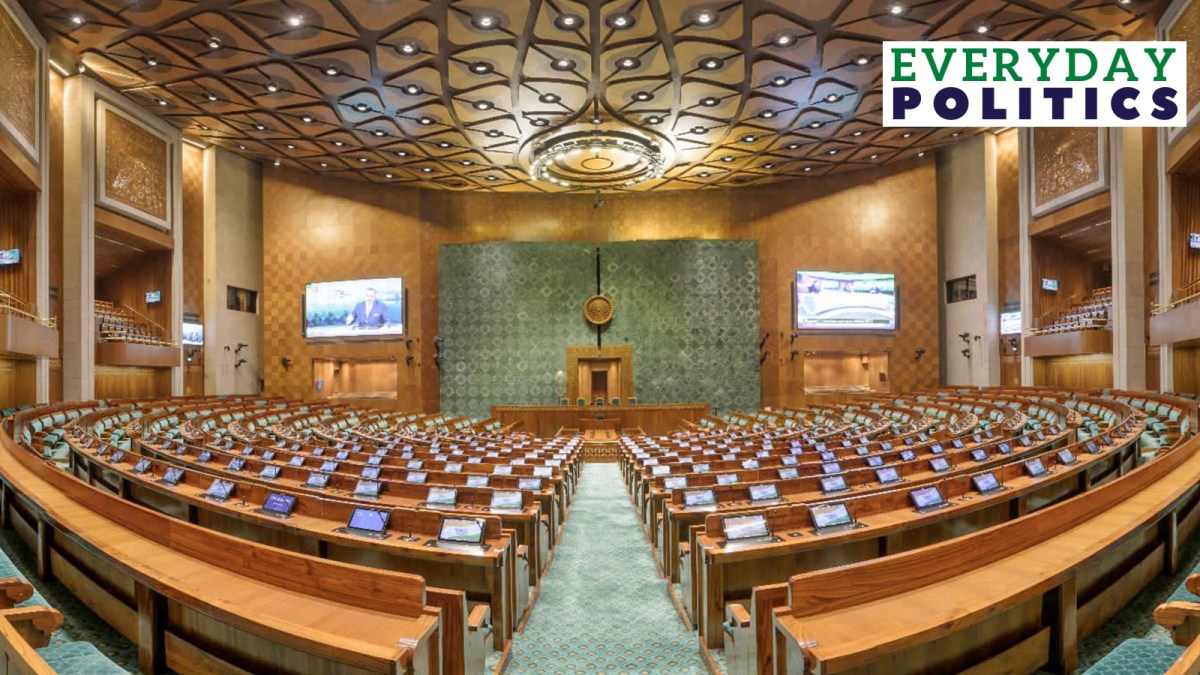Who is the pro-tem Speaker of Lok Sabha and how is an MP chosen for the role?
Senior Congress leader K Suresh, as the seniormost member of the Lok Sabha, is expected to be appointed as pro-tem Speaker when the first session of the 18th Lok Sabha begins. What exactly is the post? We explain.

The 18th Lok Sabha will hold its first session from June 24 to July 3, during which the new Speaker of the House will be elected. Speculations are rife about who will assume the post, given the strong showing of NDA coalition parties in the recent Lok Sabha elections. Until this happens, a pro-tem Speaker will be chosen to swear in the new Members of Parliament.
According to a PTI report, Prime Minister Narendra Modi will move the motion for election of the Speaker in the Lok Sabha on June 26. Meanwhile, Congress leader Kodikunnil Suresh, as the seniormost member of the Lok Sabha, is expected to be appointed as pro-tem Speaker.
What is the pro-tem Speaker’s role and what happens early in the first session of a new Lok Sabha? We explain.
What is a pro-tem Speaker?
Being the Presiding Officer of the Lok Sabha, the Speaker has to fulfil certain key duties related to its day-to-day proceedings.
Article 94 of the Indian Constitution states: “Whenever the House of the People is dissolved, the Speaker shall not vacate his office until immediately before the first meeting of the House of the People after the dissolution.”
In the new Lok Sabha, the Speaker of the House is decided by a simple majority. Until her selection, the pro-tem Speaker is chosen to administer some important duties. ‘Pro-tem’ essentially means ‘for the time being’ or ‘temporarily’.
The Constitution does not mention the post. However, the official ‘Handbook on the Working of Ministry of Parliamentary Affairs’ speaks about the ‘Appointment and Swearing in of Speaker pro tem’.
How is the pro-tem Speaker chosen?
The handbook states when the Speaker post falls vacant before a new Lok Sabha, “the duties of the Speaker are to be performed by a Member of the House appointed for this purpose by the President as Speaker pro tem”.
Administering oaths to the new MPs is the pro-tem Speaker’s primary duty. Under Article 99 of the Constitution, “Every Member of the House shall, before taking his seat, make and subscribe before the President or some person appointed in that behalf by him, an oath or affirmation according to the form set out for the purpose in the Third Schedule of the Constitution.”
Normally, three other elected members of the Lok Sabha are also appointed by the President for the MPs to take oath before them. According to the handbook, the seniormost members (in terms of number of years of membership of the House) are generally chosen for the purpose, though there have been exceptions.
As soon as the new government is formed, the Legislative I Section of the Government of India prepares a list of the seniormost Lok Sabha members. It is then submitted to the Minister of Parliamentary Affairs or the Prime Minister for identifying an MP as Speaker pro-tem and another three members for oath-taking.
How are new MPs administered oaths?
After the Prime Minister’s approval, the consent of these members is obtained by the Minister of Parliamentary Affairs, generally over the telephone. The Minister then submits a note to the President, seeking approval for the appointment of the Speaker pro-tem and the other three members. They also decide the date and time of the swearing-in ceremony.
Following the approval of the President, the Ministry informs the Speaker pro-tem and other members about their appointments. Finally, the President administers the oath to the Speaker pro-tem in the Rashtrapati Bhawan. The other three members appointed by the President are administered the oath by the Speaker pro-tem in the Lok Sabha.
The Speaker pro-tem then administers the oath/affirmation to the newly elected members with the help of the other three members. Since the session of the Lok Sabha starts at 11 am, the time generally fixed for swearing in of the Speaker pro-tem is in the morning of the same day at 9:30 am, subject to the convenience of the President.